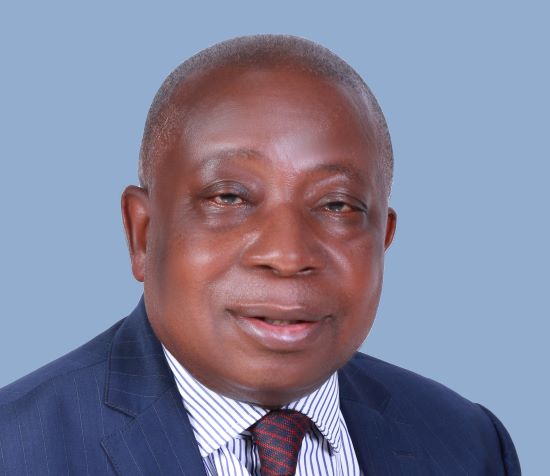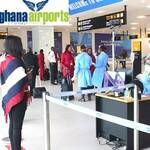In the heat of the COVID-19 pandemic, the Ministry of Health embarked on the construction of isolation and treatment centres to be completed within six months.
Nine isolation and treatment centres costing GH¢208.7 million (GH¢208,719,578.7) have not been completed and further delay delays can result in variations leading to increase in the cost of the projects.
GH¢123.7m paid to contractors
Out of this amount, over GH¢123.7 million (GH¢123,744,264.16) has been paid.
These are contained in the report on the audit of the government of Ghana COVID-19 expenditure for the period march 2020 to June 2022.
Seven of the isolation and treatment centres being constructed at a cost of GH¢158 million (GH¢158,072,331.23) have not been completed at the time of the audit, 30 months after the construction had commenced in April, 2020.
GH¢28.9m centre at Zebilla in Upper East Region
At Zebilla in the Upper East Region, the refurbishment and equipping of COVID-19 treatment and holding center is taking place at a cost of GH¢28.9 million (GH¢28,925, 100) out of which GH¢14.4 million (GH¢14,497, 463.88) has been paid.
GH¢45.8m centre at Pantang in the Greater Accra Region
Refurbishment of Pantang Learning Centre as COVID-19 holding and treatment centre in the Greater Accra Region is costing GH¢45.8 million (GH¢45,827,868.26) and GH¢31.1 million (GH¢31, 121,801.78) has been paid to the contractor.
GH¢15.8m centre at Asawinso in the Western Region
The Refurbishment of Asawinso Health Centre as treatment and holding centre in the Western Region is costing GH¢15.8 million (GH¢15,881,192.97) out of which GH¢8.2 million (GH¢8,290,769.750) has been paid.
GH¢14.2m centre at Cape Coast Teaching Hospital
At Cape Coast Teaching Hospital, the refurbishment and equipping of treatment and holding centre for GH¢14.2 million (GH¢14,250, 000) is ongoing and GH¢10.9 million (GH¢10,948,491.830) has been paid.
GH¢9.2m centre at Goaso in the Ahafo Region
Refurbishment and equipping of treatment and holding centre at Goaso in the Ahafo Region is costing GH¢9.2 million (GH¢9,263, 070) and GH¢7.2 million (GH¢7,298, 316.40) paid to the contractor.
The above five projects are being funded by the World Bank.
GH¢15m centre at Takoradi in the Western Region
Proposed design, construction and equipping of treatment and holding centre at Takoradi in the Western Region GH¢15 million of which GH¢7.9 million (GH¢7,904,265.85) has been paid.
City plus limited is executing the project funded by Ghana Government. It begun in February 2021 and was expected to be completed by January 2022.
GH¢28.9m centre at Sunyani in the Bono Region
Proposed design, construction and equipping of treatment and holding centre at Sunyani in the Bono Region GH¢28.9 million (GH¢28,925,100) of which GH¢14.6 million (GH¢14,692,074.81) paid
Funded by Ghana Government, it is being executed by Budox Construction Company which started in November 2020 and expected to be completed in November 2021.
According to the report, the Director of Infrastructure attributed the delay to funding constraints and general economic challenges which contractors complain of having negative effect on their operations
GH¢15.2m finance lease
The Auditor General observed that the Ministry of Health entered into a 25-year Finance Lease Agreement with QHC Project Limited at a total lease value of GH¢15.2 million (GH¢15,265,000) in April 2020.
The underlying assets were uncompleted buildings in Adaklu in the Volta Region which were managed by QHC Project Ltd.
GH¢20.3m remodelling the building
The buildings were to be used as an isolation centre during the peak of the COVID-19 pandemic. We noted that the Ministry could not use the facility for the intended purpose and is therefore remodelling the building at an additional cost of GH¢20.3 million (GH¢20,382,247.70) out of which GH¢13.7 million (GH¢13,726,079.86) had been paid.
Money paid without recourse to Minister of Finance
According to the Auditor General, the finance lease process indicated that the lease amount was paid to the lessor without recourse to the Minister of Finance and financial assessment by the Debt Management Unit.
The Chief Director attributed the leasing of uncompleted buildings to the emergency circumstance of the COVID-19 pandemic which necessitated the critical need to open up an Isolation Centre along the Eastern border of the Country to receive patients when the pandemic struck and positive cases were rising.
The objective of the lease was not achieved as the buildings were never ready to accommodate patients of the COVID-19 pandemic.
The Auditor General recommended that the Chief Director of the Ministry of Health should refer the agreement to the Minister of Finance to have the Debt Management Unit carry out financial assessment, including the option of purchasing the facility outright at a reasonable price and thereafter, secure retroactive approval from the Minister of Finance.
The Auditor General tasked the Chief Director to negotiate the unexpired portion of the lease amount to be deducted from the purchase price when outright purchase is considered.
The Auditor General also recommended an investigation into the choice of an
uncompleted building during the peak of the pandemic to hold isolated
patients.
Management responded that a team from the Ministry of Finance
undertook on-site monitoring of the project and added that as recommended,
the process for outright purchase is ongoing and that negotiations have been
concluded and awaiting the Ministry of Finance & Attorney-Generals’ review
and advice.
GH¢15m centre at Nalerigu in North East Region abandoned
Makro Structures Limited was awarded a contract on 11 May 2020 for the design, construction and equipment of Nalerigu treatment and holding centre in North East Region, at a cost of GH¢15 million out of which an advance mobilisation of GH¢4.5 million constituting 30% of the contract had been paid by government
The construction was to be completed in October 2022 but the contractor, upon commencing construction in October, 2021 undertook civil works up to 10% and abandoned the site in December 2021, three months after possessing the site.




